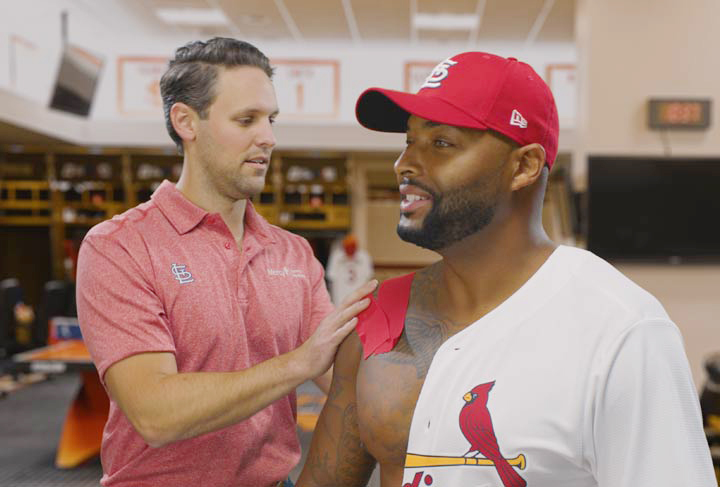
Hydration Tips
- Home
- Services
- Service Lines
- Sports Medicine
- Hydration Tips
Hydration is important, whether you are playing sports, traveling, or just sitting outside. Good hydration helps the heart more easily pump blood through the blood vessels to the muscles so they can work more efficiently.
Don't rely on thirst alone to tell you how much you need to drink. To keep your muscles working and avoid fatigue, it's extremely important to drink plenty of liquids before, during, and after activities.
Rather than waiting until you are thirsty, follow:
- An hour before starting your activity, drink 8-16 ounces of water and another cup 30 minutes before. This helps ensure you are well hydrated before you begin.
- Continue to drink 7-10 ounces of water for every 20 minutes of activity.
- Drink up after you're finished with your exercise. To help you determine the amount of fluid you lost during your workout, you can weigh yourself before and after exercise. For each pound lost during activity, drink 11-20 ounces of fluid. If your body weight increased, you have over hydrated and you should drink less fluid in future exercise sessions.
Water is best for staying hydrated, but you don’t just have to drink it by the glass. Water can also be found in fruits and vegetables, like watermelon, tomatoes, and lettuce and in soup broths.
Sports drinks can be helpful if you are planning on exercising at higher than normal levels for more than an hour. They contain carbohydrates and electrolytes that can increase your energy and help your body absorb water.
Tips For Staying Hydrated
If staying hydrated is difficult for you, here are some tips that can help:
- Keep a bottle of water with you during the day.
- Add flavor to plain water by adding a slice of lemon or lime to your drink.
- If you’re feeling hungry, drink water. Thirst is often confused with hunger.
- Drink on a schedule to help you remember. For example, drink water when you wake up, at breakfast, lunch, and dinner, and when you go to bed. Or, drink a small glass of water at the beginning of each hour.
Recognizing the Signs of Dehydration
Some people are at higher risk of dehydration, including people who exercise at a high intensity (or in hot weather) for too long, have certain medical conditions, are sick, pregnant or breastfeeding, trying to lose weight, or are not able to get enough fluids during the day. Older adults are also at higher risk.
Recognizing signs of dehydration is important. Look out for signs such as:
- Little or no urine
- Urine that is darker than usual
- Dry mouth
- Sleepiness or fatigue
- Extreme thirst
- Headache
- Confusion
- Dizziness or lightheadedness
If you experience any of the signs of dehydration, increase your fluid intake. Sip fluids slowly at first, gradually drinking more and more. Avoid caffeine and alcohol as they can have dehydrating effects on the body. Seek medical assistance if you do not improve. If you don’t feel better after rehydrating, or if you have a fever over 102°F (40°C), seek immediate medical help.
